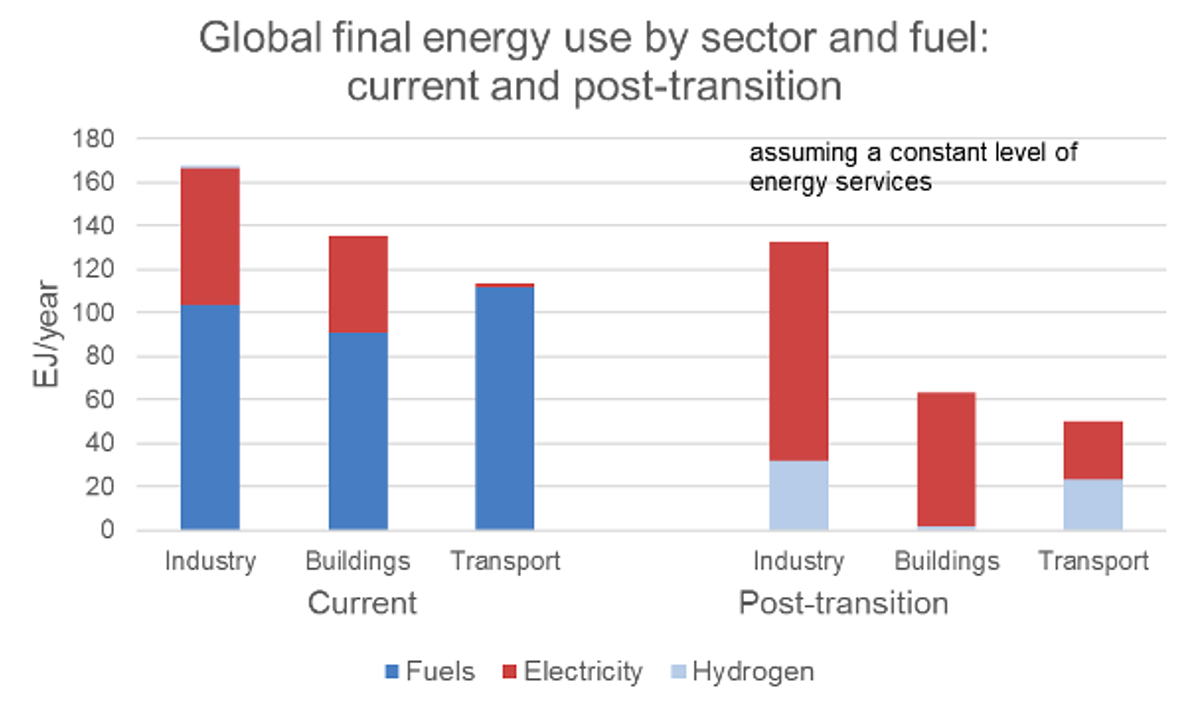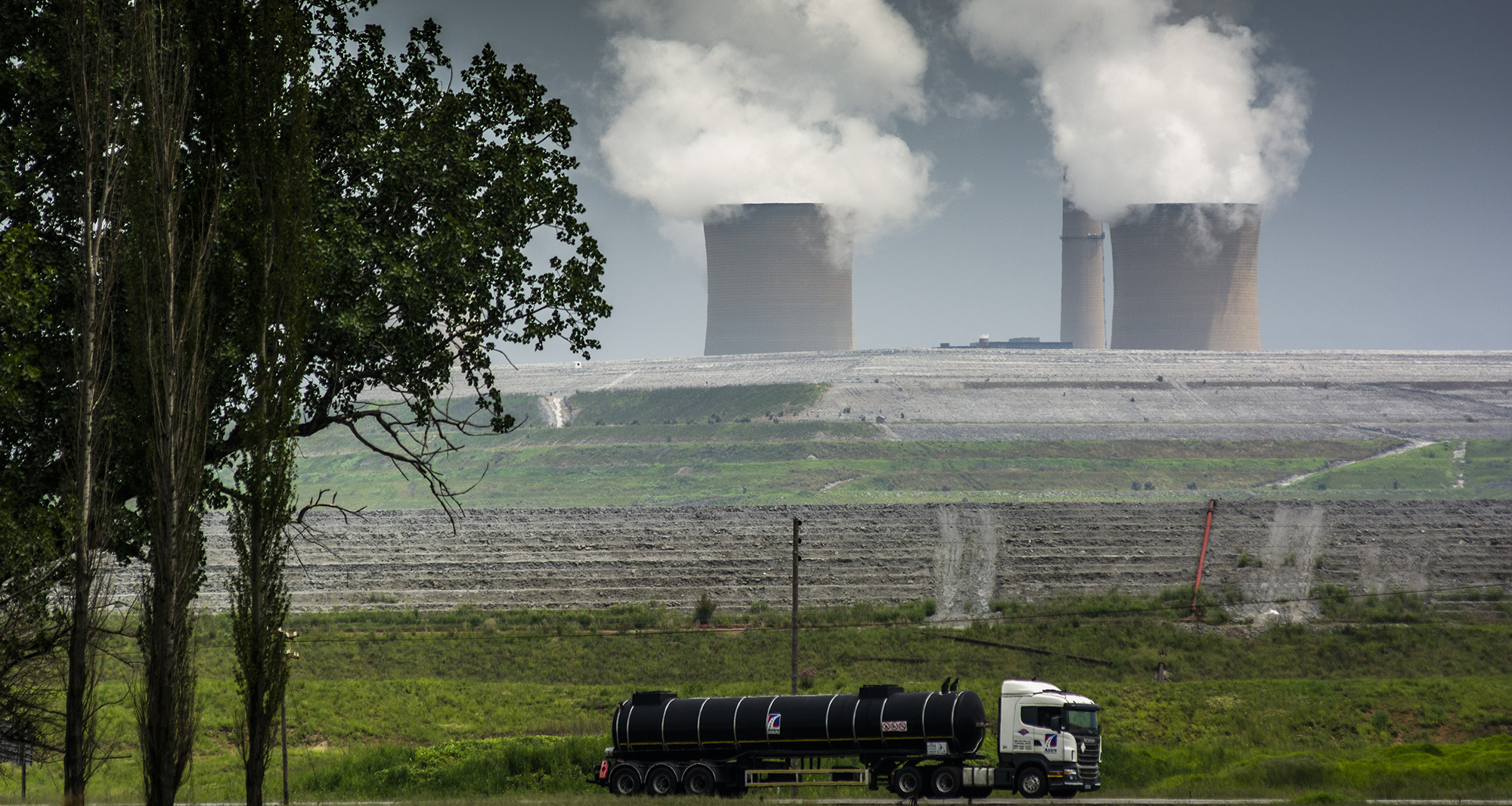The possibility of containing climate change closes this decade, scientists assure us, and changing the energy sector is key.
In the early 1990s, I joined a team that set out to research energy policy options commissioned by the ANC government-in-waiting. I was tasked with the portfolio of Energy Efficiency and Conservation in the context of adequate and affordable energy services for the urban and rural poor. In consultations with the national utility, Eskom, and various other stakeholders including unions, I quickly realised that the energy suppliers, despite developing comprehensive plans for demand-side management, did not want efficiency of the use of their products – in fact they wanted more consumption (at the time there was a significant electricity capacity surplus) and found ways to encourage consumption, giving those who were newly electrified appliances for thermal energy services.
In Eskom’s case, the argument was that to break even on the newly electrified – the neglected South African poor – a minimum threshold of consumption was required. This was encouraged by giving the newly electrified hot plates, kettle urns and irons. Big oil didn’t seem to care about efficiency except in their refining processes and biomass was almost entirely neglected as a formal part of the energy sector.
After a few years of research working alongside eminent energy academics and actors, I determined that traditional energy policy beginning with supply was not suited for the purpose of efficiently providing adequate, clean and affordable energy services. The energy policy paradigm at that time, with some reference to a “demand side”, focused on what was in the ground and how utilities could convert it to something that could be forced down the tubes and wires to sell to passive “consumers” at a profit.
Efficiency with the result of reduced sales was and still is a threat to this profit- and tax-maximisation motivation as well as to the continued employment of unionised members in the sector. The extraction of the energy from naturally occurring primary sources, whether fossil or renewable, and their conversion to deliverable energy and its transformation into a useful service, combined to make energy the largest commodity sector on Earth.
It was around that time that I attended a meeting in Toronto of the E7 (seven largest utilities globally, of which Eskom was one) called by Maurice Strong, chairperson of Ontario Hydro and organiser of the 1992 Rio Earth Summit. In the meeting he suggested a $0.0001c levy per kilowatt hour (kWh) for efficiency measures. This was laughed out of the room by the E7 who rejected it on a tax principle.
The energy sector is a substantial contributor to national and municipal fiscal incomes, private sector super-profits in the oil and gas sectors, and public sector mandates for infrastructure build and the growth of these institutions.
I have witnessed some private sector stakeholders publicly calling for more tax to be applied to them in a bid to secure their practices. The energy sector is well connected to political governance and is too essential and too large to be allowed to fail. This practice points to the irresponsible governance “hands-off” we so frequently witness in the electricity and oil sectors, while extending almost total neglect of policy and regulation to biomass, primarily in developing countries.
To sort out climate change it is imperative to sort out energy. This is not easy with vast vested public and private interests in the status quo. But it has started. Care needs to be taken to not end up with a similar problem of the dominance of the vested interests in the supply side with private sector renewables into the future. An effective policy paradigm shift could help here where the energy services lead the supply rather than the other way around.
The catch-all renewables chant as the remedy to climate change is not exclusively the answer. Nuclear energy comes with its own fleet of unresolved problems and, not least, proliferation of materials and knowledge. As much as renewables have a significant role to play into the future, we still need to fully understand the technical and institutional footprints of renewables and storage technologies into that future.
Renewables (outside of large hydro – not considered renewable) are well celebrated and growing fast, but remain a very small fraction of global energy supply. The policies and institutions need to change to incorporate the changing reality of the energy landscape and the just decarbonisation transitions into the future. Can you imagine the large, flat-footed utilities like Eskom, fully vested in large, centralised and dirty energy, transforming to small, decentralised, efficient and clean utilities that are what is required now and into the future? Can this leopard really change its spots? I don’t think so.
Meanwhile, big oil and gas go about business-as-usual, expanding exploration for new oil and gas reserves while talking up strategies that point to net-zero, including green hydrogen which has never achieved at scale, while omitting responsibility for the emissions of their products in use – a key “scope 3” component of the Greenhouse Gas Protocol.
Sort out energy, expand resources for building resilience for those facing climate change and protect and maintain the diminishing natural carbon sinks that support biodiversity – this needs to happen immediately.
To do this requires a paradigm shift in policy thinking and compliance regimes to achieve the just energy transitions away from fossils and towards good jobs in clean and efficient energy services. Institutional reform would naturally flow from revised energy policy approaches. The policies affect a range of public and private institutions, whose prerogative it is to respond to the policy, strategies and compliance with regulations, deciding for themselves which institutional changes best facilitate identifying and implementing opportunities. Smaller, decentralised, efficient, clean and affordable are the desirable guides to this transition.
Energy supply and transportation/transmission to the point of use and the “security” thereof, is the primary focus of policy attention because that is where the big money is. The services being met remained the same, but were regarded as a downstream spin-off of that. This perspective gave mandates to investing and building big supply and transmission/transportation infrastructure. Someone who realised this earlier than me was the inspirational Amory Lovins, who said:
“People don’t want raw kilowatt-hours or lumps of coal or barrels of sticky black goo. They want hot showers, cold beer, comfort, mobility, illumination. It’s like when you go to the hardware store looking for a drill. What you really want is not a drill but a hole. And why do you want the hole?”
Asking such questions, Lovins says, is the first step in good design.
That “good design” could translate as readily to a service or household, as to a neighbourhood or a national system. But that flies in the face of the interests so focused on by the big money in fuels, infrastructure and technologies as the drivers of the traditional policy paradigm.
Examples of energy services approaches are few, but relevant. The provision of district heating (and cooling) in northern Europe and some of the mini-grid suppliers such as Devergy who charge for lights, TV and phone charging, supplying the most efficient technologies and charging for the services rather than the consumption. Building codes to ensure adequate thermal comfort in various climate zones to effect passive space heating or cooling, which makes sense as a thermal comfort service intervention. Charging for cost-reflective energy consumption holds considerable merit in providing the appropriate “price signals”.
The requirement to meet the net-zero emissions target by 2050 requires urgent action to meet the energy services of households and productive activities. To meet these services and reach net zero, a combination of both energy efficiency and renewable energy will be required. Nick Eyre, in a recent publication in Energy Efficiency, provides a glimpse of what this might look like based on the data of the International Energy Agency and back-casting the demand for various sources to meet the Paris target efficiently.

What is required is a policy paradigm that begins with what the energy sector is there for in the first place – efficient, reliable and affordable energy services to households and for productive activities (light, cooking, pumping, mobility, water and space heating, communications, etc) – looking upstream to source this securely from the real least-economic cost-supply perspective: with anything less, net zero seems out of reach.
The energy sector is not there just to provide new investment opportunities for private sector money needing to find a home. The sector is there for energy services primarily. How can policy be developed that prioritises users and their energy service requirements, and meets these requirements while achieving climate goals? OBP/DM
This is an introduction to a longer piece written by Steve Thorne. He is founder of NGO SouthSouthNorth and is an independent energy and climate change consultant.
[hearken id="daily-maverick/8821"]
This article is more than 3 years old
South Africa
Light bulb moment: Climate debate is not about profits for the big utilities – it’s about power to the people
Energy policy to date has not served us well – it’s wooden, static and supply-side focused and has resulted in energy insecurity, large price hikes and unsustainable climate change. Sort out energy and expand resources to resilience for those facing climate change or we face the climate abyss. This requires a paradigm shift in policy thinking.




